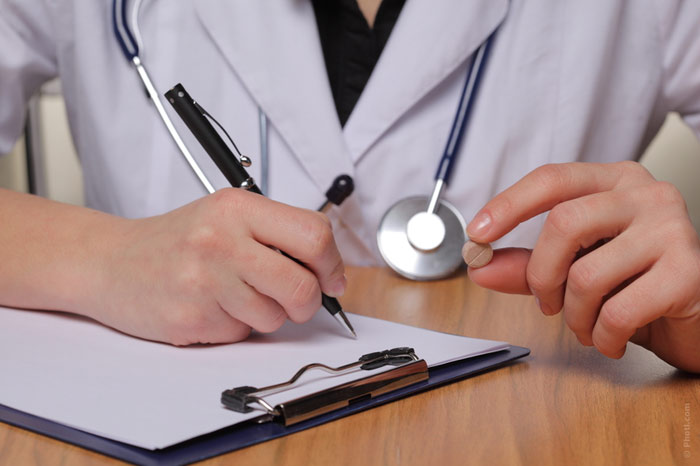How to Make Your Daughter’s First Gynecology Visit Comfortable?
Girls on the verge of shedding their pre-teens begin to need far more medical attention. It is advisable, as the American College of Obstetrics and Gynecology urges, for girls over 13 to begin visiting an obstetrician-gynecologist.
 Unless the little woman has serious complaints of unexpected vaginal secretions and bleeding, or of pain during periods, she is not going to undergo internal examinations of her genitals until she turns 21. An external one should be enough for years to come if no threats to the reproductive parts have been detected. But even so, the girl is very likely to be confused and appalled by the procedure that is quite natural.
Unless the little woman has serious complaints of unexpected vaginal secretions and bleeding, or of pain during periods, she is not going to undergo internal examinations of her genitals until she turns 21. An external one should be enough for years to come if no threats to the reproductive parts have been detected. But even so, the girl is very likely to be confused and appalled by the procedure that is quite natural.
While your daughter has every right to feel embarrassed or even frightened by the forthcoming visit, this could be easily placated by a thorough explanation of what she is to expect and why it is necessary. She can be harboring fears that had better be voiced and explained away well before the event.
What makes the first gynecological examination so significant?
In order to lay your daughter’s misgivings to rest,
- let her know the importance of being examined;
- tell her precisely what is going to happen;
- ask her what she could be afraid of and allay her fears.
The girl is by now accustomed to the thought that doctors are consulted when the health is failing – what’s the reason to go visit a doctor when she is doing fine?
Tell her healthy women also visit a doctor for:
- up-to-date information about her body and the way it is changing;
- the possibility to ask questions about sexuality and how to come to terms with it;
- pregnancy prevention, sexually transmitted diseases and healthy habits;
- treatment of any possible irregularities, pains and missed periods.
How to choose the right person for health care?
Your child is about to entrust her sexual health to a doctor (or a nurse practitioner), and it is important that they should be able to provide maximum comfort for a girl who is still unsure about her vaginal examination. It’s time she was involved in the choice of the proper person, even if you have taken medical decisions for her before.
Begin with asking her about her preferences about the desired health provider:
- Who will she feel comfortable about – a woman or a man, a younger or a more mature person?
- Is it a good idea to entrust the first examination to the pediatrician your family knows well or ask them to recommend a totally new doctor who specializes in it?
- Will she agree to go to your own doctor, or would she opt for a gynecologist who isn’t related to you in any way?
Make inquiries about a specialist who you believe would meet your requirements. If your gynecologist hesitates to issue a recommendation, go to a conventional medical institution and ask for recommendations there.
When you are inquiring about a health care specialist, you might want to know the answers to the following questions:
- if they are board certified;
- what their attitude to discussing sexual life is;
- what confidentiality policy they adhere to;
- if they are experienced in examining teenage girls;
- if they conduct examinations alone or has somebody else in the room;
- whether they would mind if your daughter likes to try a different provider.
Before you commit yourself, talk to several specialists and relate their replies to your daughter, asking her whose attitude she likes more.
Before you set out for the examination, ask the girl if you can attend the examination. Even if she agrees, let her spend some time with the doctor in private. There might be some information she doesn’t want you to know, but it is advisable she should be completely open with her health care provider. Besides, it makes her feel better to discuss future issues unrestrainedly and gives her a chance to bond with the specialist.
Issues to be raised
The gynecologist is sure to ask your daughter questions intending to reveal her history related to her reproductive functionality. They are likely to inquire about:
- her last period;
- whether she had any problems: soreness, itchiness, bleeding or pains;
- whether she had unusual discharges;
- any sexual activity she may have had, of all kinds, vaginal, anal, oral; if she
- had, how she protected and whether she used birth control;
- if she could be pregnant.
Having discussed these and other points, the specialist will determine the tests to be run, so your daughter must realize that her truthfulness during answering is essential although she will find the questioning uncomfortable.
Then, your daughter is sure to have questions about her genitals that she may be shy to ask, fearing they would be regarded as insignificant or downright silly. Make sure she understands that there is nothing very special about her issues, and her health care provider will be only too glad to discuss them with her. What’s more, they will tell nobody what she will reveal to them.
Now, what will the examination be like?
Mind that your daughter doesn’t know how it is going to be – and she has to have an idea of what is going to happen, and, what’s more, what is the reason for the examination. Should she and you be willing, you can let her be present at your examination and question your health care provider afterward.
Basic health data. The exam will begin with a nurse taking your daughter’s measures – weight, blood pressure, heart rate. Then, she may have her stomach, lungs, heart and other parts of the body examined. The gynecologist will want to have all possible information on her health for future reference and comparison.
Examining breasts. It is necessary for the gynecologist to check for lumps and breast condition altogether to see how well the development is carrying on.
External view. It is an integral part of the examination. The girl will be asked to take off her clothes and drape herself with a sheet; then she will be placed on a special table with her legs bent at the knees and apart. She may also be put in stirrups, in which position the examination of her external reproductive parts will be carried out for swelling, sores, or other possible irregularities.
The pelvic exam, or internal invasion. It may not be considered necessary, but then again, it may be. Then the gynecologist will press the girl’s belly gently with one hand while inserting a finger or two inside the vagina in order to check the ovaries and uterus. The doctor may also want to use a tool, known as a speculum, to widen the vagina entrance and further examine the walls; screening tests can be done as well.
Your girl should be aware that she might have to bear a little pressure which won’t be painful. If she feels discomfort, she should relax her belly muscles and breathe deeply.
Taking a Pap smear. The pelvic exam might include taking a Pap smear. Usually, it is not done during the girl’s teens but is a regular procedure after she reaches 21. The test involves taking a sample of cervix cells with a spatula or a special brush. It is sent to the lab to be checked for signs of cervical cancer or any insidious changes.
Also, the doctor can be interested if the girl had HPV (the human papillomavirus vaccine) done before. If not, she may be suggested to have it done in order to get protection against the human papillomavirus which produces warts and is linked to developing cervical cancer.
Learning about STD Testing
This kind of testing doesn’t belong with a regular examination, and your daughter may not even be mentioned it. Yet those patients who had sex would do well to undergo STD testing. It is done during the interior examination by a cotton swab; some specialists will also take blood tests or/and urine test.
You would do well to confer with somebody at the place about your daughter receiving the results of the test privately. They may keep the result until she calls for it personally instead of mailing it off.
As soon as the girl’s visit is over, get her to discuss it with you, if only partially. Maybe you two will agree on looking for another specialist she will feel more comfortable around. Tell her she is going to have yearly examinations like this so that both of you could be sure she remains healthy and well-cared for on this account.



